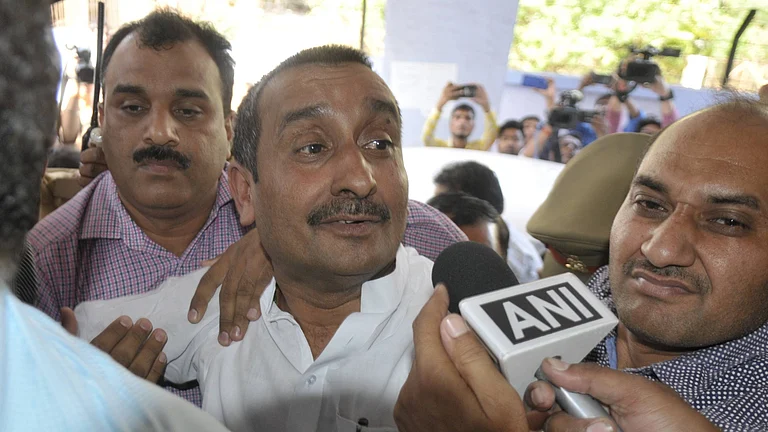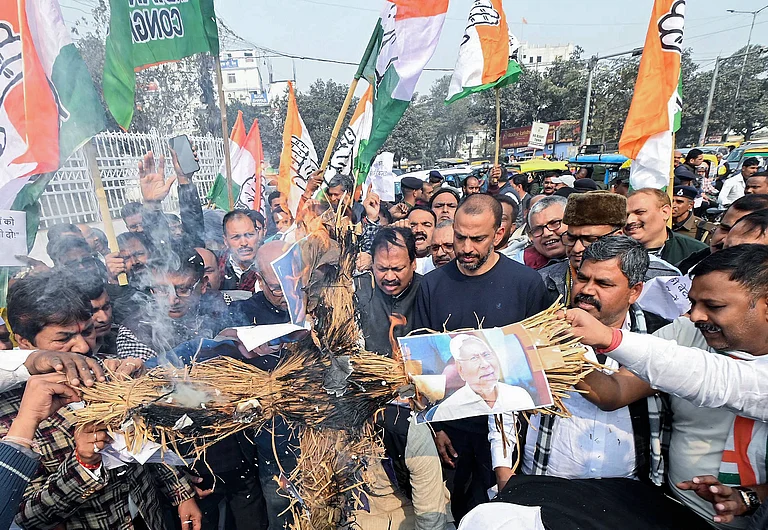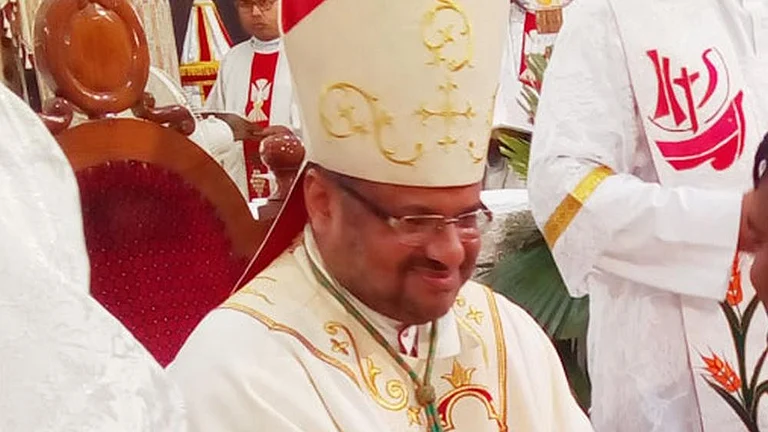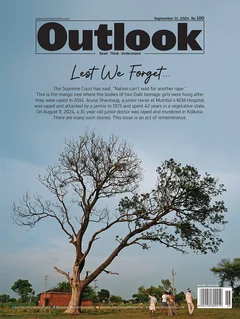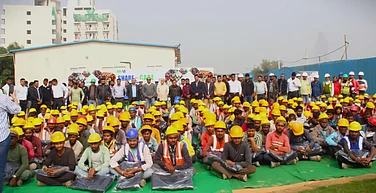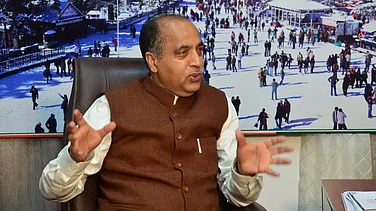This is the cover story for Outlook's 11 September 2024 magazine issue 'Lest We Forget'. To read more stories from the issue, click here
As a lawyer and as a woman, I have tried to let Bilkis be. I have made sure she does not have to revisit the pain of the past again and again. Gender crimes, after all, are traumatic for survivors. They are like an injury that never heals.
The Bilkis Bano case came to me in 2003. She did not pick me as her lawyer. I was appointed by the National Human Rights Commission (NHRC) chairperson who visited her in a relief camp and noted down her testimony. When she was asked to narrate the incident, she told him: “I was not raped once, but I am raped every time I am asked to narrate what happened.”
This was the one line that AS Anand, the NHRC chairperson and the former chief justice of India, stressed while handing over her case to me. I was a young lawyer then, with only seven years of experience. However, even after all these years, I have still not forgotten that line. I empathise with rape survivors when they are made to tell their stories again and again.
I always try to humanise the approach. Anyone who has suffered sexual violence should be protected. They should be insulated from the gory details of other rape cases. They should not be asked to talk about them. What reaction can they offer other than disgust and anger? What reaction can Bilkis offer? She has fought a very long battle, and I am sure every inch of her body, mind and soul would be screaming that no other woman should suffer this trauma.
However, complete insulation from such cases is a far-fetched reality. Certainly, the details of the Kolkata rape case have reached her through social media and news channels. But I don’t want her name to come up every time.
A Woman of Few Words
Bilkis is a woman of few words. In 2017, when the Bombay High Court upheld the life imprisonment of the 11 accused and refused to enhance punishment, she accepted the judgment. This despite losing 14 members of her family and suffering the extreme trauma of gang rape.
Even in 2019, when she was awarded the highest compensation, she was calm. She was smiling during the press conference, though. She was satisfied that the perpetrators were convicted. Though we were expecting the death penalty, as it was the rarest of the rare cases, and I discussed with her about challenging the order, she said the point of pursuing the case was that the perpetrators had done something terrible, and they needed to be punished. She was not willing to go beyond that. She was looking forward to starting a normal life and the anonymity that the closure of the case would bring. However, on August 15, 2022, the news that convicted men were granted remission, hailed as heroes, and garlanded, left her devastated. This happened when she was looking forward to starting a normal life again.
In January 2024, when the Supreme Court quashed the remission order, I called her up. I could sense that she was relieved. On Eid, her husband sent me a joyous picture of Bilkis; she looked happy.
A Collective Fight
Bilkis was not left alone. Her fight became our fight. The judiciary was on our side, too. However, now we need to ask some pertinent questions. If one hundred and six cases are reported every day, we must question the government. Political parties must ensure that rape accused are not made MPs or MLAs. What we need is a Uniform Rape Case Code. There is a need for mandated procedures. Penal provisions should be in place for officers who violate guidelines. Given the technological advancements, the investigation should be completed within a week. The trial should not take longer than a fortnight. We need designated courts. We have a backlog, and new cases are piling up. The trial courts, high courts and the SC must operate in a time-bound manner.
In the case of Bilkis Bano, the trial court judgment came in 2008, six years after the crime. The High Court appeal judgment came in 2017, and the SC upheld it in the same year. It took 15 years for the courts to reach a verdict after the first appeal was made. Numerous rape cases were reported in the interim. Many went unreported. The Bilkis Bano case was widely reported, and the media helped her cause. She was fortunate that media’s approach was extremely cautious.
As told to Shweta Desai
MORE FROM THIS ISSUE
Shobha Gupta is a senior advocate who fought pro-bono for 21 years for justice for Bilkis Bano
(This appeared in the print as 'Gujarat Diary')







